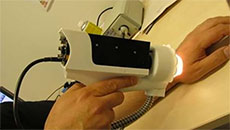In tests to diagnose heart conditions, physicians have used a formula for years to calculate maximum number of heart beats a person can achieve per minute.
But this formula is flawed as it does not take into account the difference between men and women, a research said.
The peak heart-rate norm is also used by many to derive target heart-rate during a workout.
Doctors used the simple formula of '220 minus age' to determine how hard a patient should exercise during the common diagnostic test known as the exercise stress test.
After analysing more than 25,000 stress tests, the researchers found significant differences between men and women and developed an updated formula to reflect those nuances.
"It is logical that an equation developed 40 years ago based on a group that was predominantly men might not be accurate when applied to women today," said Thomas Allison, cardiologist and director of stress testing at Mayo Clinic in the US.
The sample included men and women aged 40 to 89 who had no history of cardiovascular disease.
The study showed that although peak heart-rate declined with age, the decline was more gradual in women.
As a result, the previous formula overestimates the peak heart-rate younger women can achieve and underestimates the peak heart-rate of older women, said the researchers.
Women in the age group of 40 to 89 years should expect their maximum heart-rate to be 200 minus 67 percent of their age and in men, the formula is 216 minus 93 percent of their age, the study noted.
The research also showed that younger men have a lower resting heart-rate and higher peak heart-rate than women and men's heart-rates rise more dramatically during exercise and return to normal more quickly after stopping.




